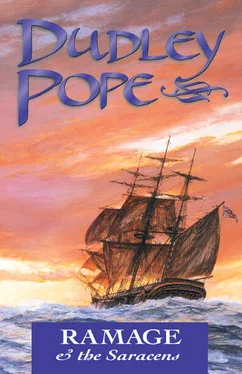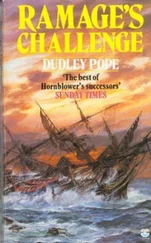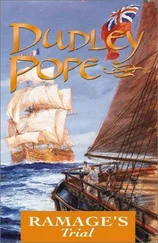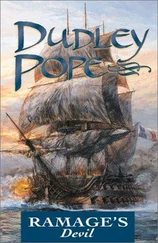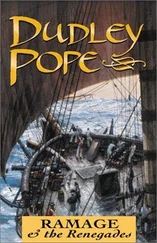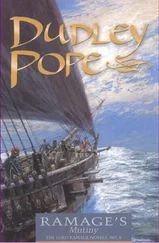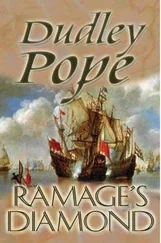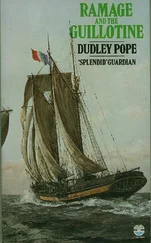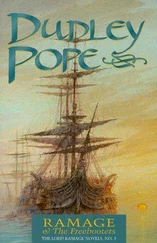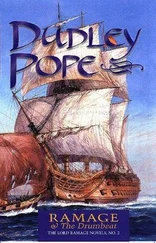Dudley Pope - Ramage and the Saracens
Здесь есть возможность читать онлайн «Dudley Pope - Ramage and the Saracens» весь текст электронной книги совершенно бесплатно (целиком полную версию без сокращений). В некоторых случаях можно слушать аудио, скачать через торрент в формате fb2 и присутствует краткое содержание. Жанр: Исторические приключения, Морские приключения, на английском языке. Описание произведения, (предисловие) а так же отзывы посетителей доступны на портале библиотеки ЛибКат.
- Название:Ramage and the Saracens
- Автор:
- Жанр:
- Год:неизвестен
- ISBN:нет данных
- Рейтинг книги:4 / 5. Голосов: 1
-
Избранное:Добавить в избранное
- Отзывы:
-
Ваша оценка:
- 80
- 1
- 2
- 3
- 4
- 5
Ramage and the Saracens: краткое содержание, описание и аннотация
Предлагаем к чтению аннотацию, описание, краткое содержание или предисловие (зависит от того, что написал сам автор книги «Ramage and the Saracens»). Если вы не нашли необходимую информацию о книге — напишите в комментариях, мы постараемся отыскать её.
Ramage and the Saracens — читать онлайн бесплатно полную книгу (весь текст) целиком
Ниже представлен текст книги, разбитый по страницам. Система сохранения места последней прочитанной страницы, позволяет с удобством читать онлайн бесплатно книгу «Ramage and the Saracens», без необходимости каждый раз заново искать на чём Вы остановились. Поставьте закладку, и сможете в любой момент перейти на страницу, на которой закончили чтение.
Интервал:
Закладка:
DUDLEY POPE
Ramage and the Saracens
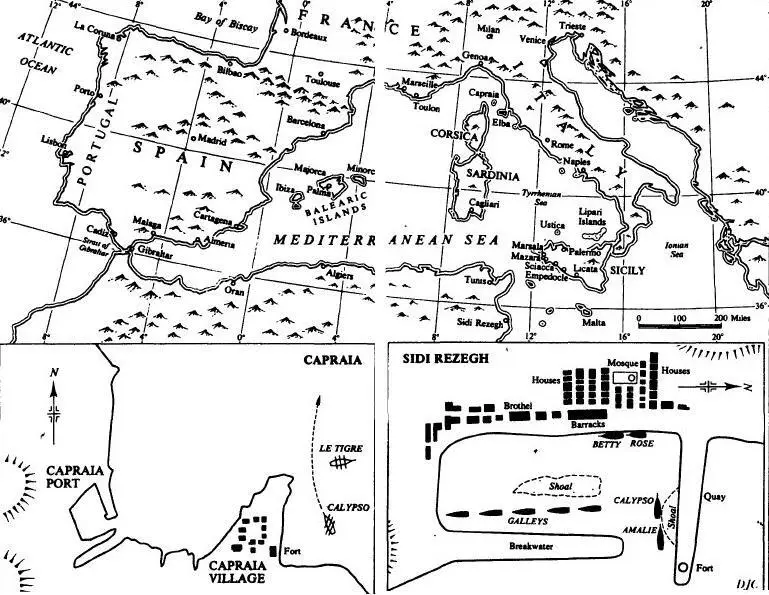
AUTHOR'S NOTE
With the exception of Sidi Rezegh, all the places mentioned in this narrative actually exist and are described as they would have been in 1806.
St Martin
French West Indies
CHAPTER ONE
Southwick counted the pieces of salt beef as the cook's mate lifted them out of the cask, banging each piece before he removed it to shake off the encrusted salt. Each piece of meat was as dark as old varnish and the salt was stained like muddy sand.
It would take many hours of soaking in fresh water in the steep tub to dissolve that hardened salt, the master thought to himself, and a lot of boiling afterwards before the men could get their teeth into the meat.
This cask was full of old meat: from the look of it many months had passed - even a year or more - since the carcase had been cut up in the contractor's slaughterhouse and salted down in the cask. Still, it was not as bad as some he had seen in the old days, before the Great Mutiny had led to an improvement. Then it was not unusual to find meat so hard it could be carved, looking rather like mahogany.
He continued marking the slate and looked at the side of the cask on which was stencilled the legend "54 pieces". Well, it might contain fifty-four pieces; it was not entirely unknown for the number of pieces to match what the contractor had painted on the outside, but it was rare, and the discrepancy was always on the side of the contractor.
Southwick, like every other master in the King's service doing this particular job, had to note the difference in his log, and as the cook's mate finally lifted out the last piece and Southwick looked at the tally on the slate, he could see they were fortunate: the log entry would simply say: "Opened cask of beef, marked 54 pieces, contained 52."
In theory the Navy Board claimed back from the contractor the value of the difference, but Southwick wondered if they ever did.
The seamen were cheated by the dishonest contractors, not the Navy Board: the clerks at the Navy Board had their dinner whether or not a cask was missing several pieces of meat. It was only the seamen who went without: a ship was issued with so many casks of salt beef and salt pork for a commission or voyage, and that was that: the men just had to make it last.
With the last piece taken from the cask, Southwick said: "Very well, get all this into the steep tub," gesturing at the pile of meat, most of which seemed to him to be fat or bone, and he turned to go below to make the entry in his log.
Captain Ramage, standing at the forward end of the quarterdeck, asked: "Short again?"
"Only two pieces, sir," Southwick said, adding gloomily: "The Navy Board seems to have been getting rid of some old stock: looked more like off-cuts of mahogany from the carpenter's shop than salt beef."
Ramage nodded and noted that they were lucky: it was usual for there to be half a dozen pieces missing, or even more, and much of the meat comprised chunks of fat which, when the meat was put in the coppers to cook, would float on top of the boiling water, to be skimmed off by the cook's mate and sold illicitly to the men as "slush", providing something to spread on their hard biscuits and giving the cook's mate the nickname of "Slushy". Did the cook demand his share of the proceeds?
Ramage shrugged his shoulders and found he did not care: it was a fine day with a brisk wind, just enough to raise a few white horses and the Mediterranean was unbelievably blue, as though welcoming back the Calypso after the spell in the Atlantic.
How many times had he passed through the Strait of Gibraltar up to now? A score of times? Anyway, Europa Point was a familiar enough landmark, and now the men would be commenting on being "Black Strapped", their description of being in the Mediterranean and deriving either from Black Strap Bay, on the eastern side of Gibraltar, or from the coarse Spanish red wine which would soon take the place of their rum issue, and which was not very popular.
The Calypso stretched along under all working sail, pitching slightly in the head sea, as though curtsying. Each pitch brought a slight groan from masts and yards, as though they were protesting;
every now and again the sails slatted as an unusual wave made the ship pitch more than usual, spilling the wind momentarily and then letting the sails fill again with a bang.
A sudden shout of "Deck there!" from the foremasthead sent the red-headed second lieutenant, Kenton, lunging for the speaking trumpet and shouting up an acknowledgement.
"Sail two points on the larboard bow, sir!" shouted down the lookout.
Kenton turned to Ramage, to make sure he had heard.
Ramage nodded. "How far off?"
Kenton's hail brought the answer of eight or ten miles.
Without bothering about a cast of the log, Ramage estimated the Calypso was making about seven knots. He took out his watch. It would soon be noon. "Pass the word to Mr Aitken not to secure the guns," he said. For the past hour the men had been busy at gunnery practice: without actually firing, they had been loading, running out and pretending to fire the guns, the sharp cries and the rumbling of the trucks punctuating the lazy noise of the Calypso's progress.
A sail in sight: in this position and at this time it was routine: probably another frigate bound for Gibraltar from Malta or Naples, or even an Algerine: they sneaked out of the Barbary coast ports to see what they could pick up - just pirates. The chance of the sail being French was slight: they were still licking their wounds after Trafalgar. He corrected himself: at Trafalgar they had lost many ships of the line, not frigates, so in theory the sail in sight ahead could be a French frigate, but it was not likely. The defeat of the French at Trafalgar had been a blow to their confidence as much as to the total number of ships they had: it would probably be many months before they ventured to sea again.
"Deck there, foretopmast here: there are two sail!"
Kenton answered the hail and Ramage thought: two sail meant even less chance of them being French. But soon the men would be sent to quarters, because in wartime every sail had to be treated as potentially an enemy, to be met with guns run out and a hoist of flags challenging her to reveal her identity.
Ramage realized that he could not remember the secret signal for the day and went below to his cabin, unlocking a drawer in his desk to look it up.
The secret signal comprised a table lasting three months which set out the challenge and the correct reply for each day. The table was issued by the commander-in-chief and applied only to the area he commanded. It was without doubt the most secret thing on board the ship: the penalty for allowing it to fall into enemy hands was a court martial to begin with, and no captain of a ship could expect any mercy from the court: that was made more than clear in the preamble to the signals.
The secret signal and the ship's number in the List of the Navy -they were the flags to be hoisted as soon as a strange ship was close enough to distinguish them. Unless one recognized the other ship it was always a slightly tense moment: from the very first day when one went to sea as a midshipman, one was brought up to consider every strange sail as potentially an enemy. And for most of the years since then at least half the time it usually was. He put the signals away and went back on deck.
Southwick came up the quarterdeck ladder. "A couple of sail, eh? Getting like Spithead round here!"
Читать дальшеИнтервал:
Закладка:
Похожие книги на «Ramage and the Saracens»
Представляем Вашему вниманию похожие книги на «Ramage and the Saracens» списком для выбора. Мы отобрали схожую по названию и смыслу литературу в надежде предоставить читателям больше вариантов отыскать новые, интересные, ещё непрочитанные произведения.
Обсуждение, отзывы о книге «Ramage and the Saracens» и просто собственные мнения читателей. Оставьте ваши комментарии, напишите, что Вы думаете о произведении, его смысле или главных героях. Укажите что конкретно понравилось, а что нет, и почему Вы так считаете.
